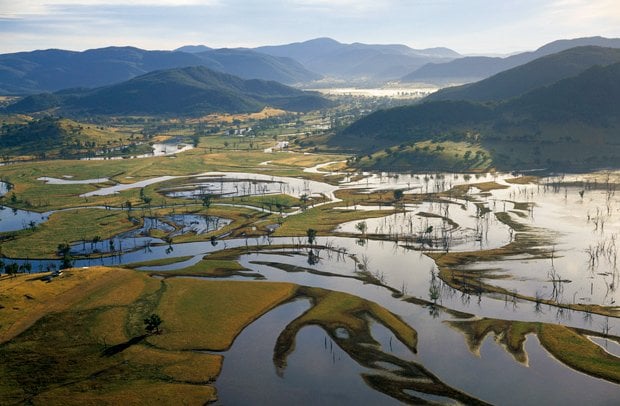Half the world’s wetlands destroyed in 100 years

AN ALARMING 50 PER CENT of the world’s wetlands have been destroyed in the last 100 years, threatening human welfare at a time of increasing water scarcity, a new report says.
Wetlands are a vitally important ecosystem, serving as a source of drinking water and provide protection against floods and storms, yet they have been decimated to make space for housing, factories and farms or damaged by unsustainable water use and pollution.
“In just over 100 years we have managed to destroy 50 per cent of the world’s wetlands,” said Achim Steiner, executive director of the United Nations Environment Program.
“It is a startling figure,” he said at a UN conference in Hyderabad.
World’s wetlands under serious threat
The report, compiled by an ongoing research project titled TEEB, or The Economics of Ecosystems and Biodiversity, said coastal wetland losses in some regions, including Asia, have been happening at a rate of 1.6 per cent per year.
“Taking mangroves as an example, 20 per cent (3.6 million hectares) of total coverage has been lost since 1980, with recent rates of loss of up to one per cent per year,” the report said. “We need wetlands because our existence, our food and our water is at stake,” said Ritesh Kumar of the environmental group Wetlands International.
Wetlands are known to cover about 13 million sq.km of the Earth’s surface, and are a natural sink for Earth-warming carbon dioxide, act as fish nurseries and are important tourist attractions.
In the United States alone, wetlands are estimated to provide $US23 billion ($A22.53 billion) worth of storm protection every year, the report said.
The report was released at a conference of the UN Convention on Biodiversity, where environment ministers will hold three days of talks from Wednesday to try to raise funds to stop the decline of Earth’s natural resources.
RELATED STORIES

